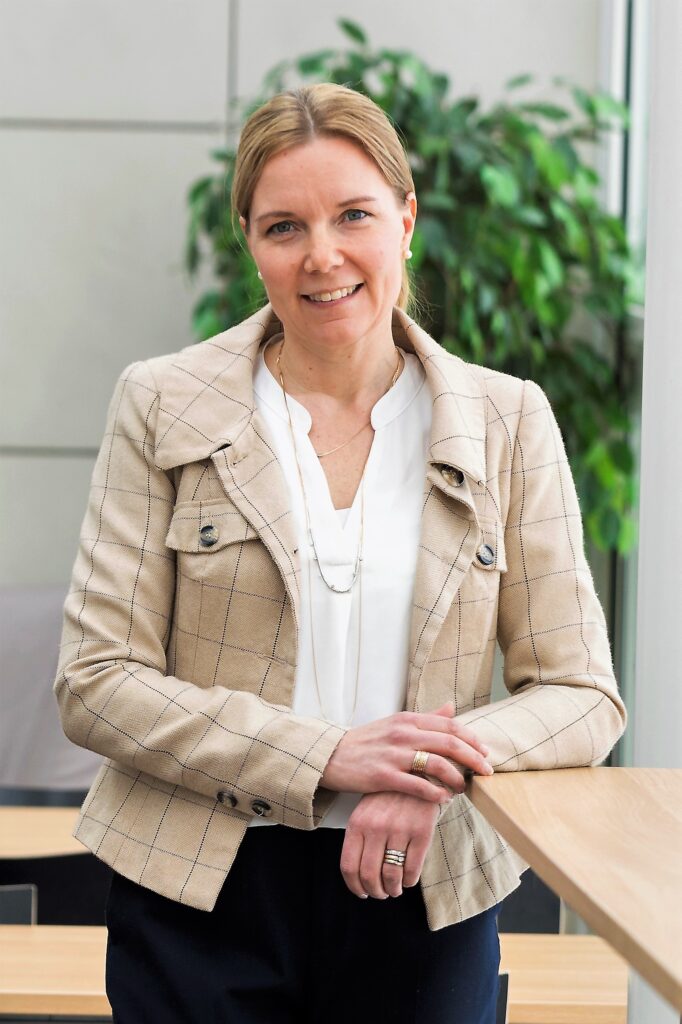Entrepreneurial mindset – the key to lifelong learning and success

After her inspiring presentation on Entrepreneurship in Education, I felt the urge to discuss further with Sanna Nummela about her work as a Lead Expert at EduCluster Finland. With this interview, one of my main goals is to raise awareness of Finnish education export projects conducted by the ECF and to provide insight into their training programs. In addition to Sanna’s experience, we will speak of international job opportunities for teachers!
Why entrepreneurial mindset is the key to lifelong learning? We will get to that as well!
Tell us a bit about your background, how did your career start?
I think it’s important to mention that I grew up in an entrepreneur family, because it’s very much built me, the way I think and the way I approach everything these days. After graduation from the University I went to work at University of Applied Sciences JAMK, which is actually one of our EduCluster Finland owners. I was there for 10 years working as a teacher, mainly in the tourism & hospitality field, in projects and in the marketing department. All in all, while teaching, I was connecting the working life with academia at the University of Applied Sciences, until to the point where I felt like I really needed to do more hands-on and with the students. So I went to the vocational sector and I worked for Vocational Education Consortium Gradia.
During that time I was also part of the planning team building training courses for teachers and students outside of Finland. I was privileged to get the chance to go to China where we had our first three-week intensive training programme related to entrepreneurial skills. After which, we really started to develop those processes and training packages and many more cases were implemented in Asia.
Tell us about EduCluster Finland please, who are you mainly working with and what is the mission behind your products?
When we are looking at it from the strategic point of view, the main product line is the K12 schools, the elements in basic education, like teacher training or curriculum development.
It all started almost 11 years ago with the training programmes, and in 2014 we reached a milestone: Qatar-Finland International School was established at the invitation of the Qatari Ministry of Education. The school in based on Doha and is operated by EduCluster Finland, offering education from the grade 0 till 11 including the High School.
Our main product is basically the Finnish education itself, or at least its main elements. We are building schools based on the Finnish concept, either that with the whole Finnish curricula localised or parts of the Finnish curriculum.
We first find the partners in the destination and then start establishing the elements, building the school together based on the Finnish curriculum and then recruit Finnish teachers. Geographically Asia, especially China, Gulf area, specially UAE was a game changer, where we first started to do teacher training programmes and it led to another and now we have lots of partners securing the area.
I have seen some posts that you are recruiting teachers to work abroad, which is an amazing opportunity for Hungarian teachers as well. Can you please tell us about these positions? How long is the contract? Are they specifically for Finnish teachers?
The main idea is that we need our Finnish teachers to build the ‘finnishness’ inside the international schools. However, in order to be able to grow and to become established in each location, we also need the local teachers and then other international teachers as well.
We want that the local teachers would then take more responsibility, especially if we’re looking at the next 10 to 15 years: the aim is to see the school with some of the same elements, after the Finnish teachers had left.
It is important to mention that in most cases Finnish teachers can get two years leave from their own school, after which they usually need to inform whether they kind of quit or whether they come back. That is sort of crucial, because if every year the teachers are changing and if there aren’t any other international or local teachers at the school the knowledge is leaving with the teacher.
Link: educlusterfinland.fi/careers/

How did covid-19 change how you work or how you can perform your activities?
It wasn’t good news that we were not able to see our clients over the lockdown. There were lots of training courses already from the year back that we were supposed to implement in Asia and in the Gulf area. These were then postponed because some of the clients were not that familiar with the equipment and they didn’t want to do it online. Then again, I see that there was lots of good coming out of this situation, because we were forced to rethink our products and our service line.
During the past year from last March till September, October; we created new packages that we are able to implement online especially for this kind of upskilling training programme for the students and then professional development programmes for teachers.
I think we should turn a bit back to entrepreneurship because that’s your main expertise. So entrepreneurship. Do you believe that it is linked with lifelong learning?
Well, first of all, yes, I do believe that when you have an entrepreneurial mindset, it’s really much related to lifelong learning. You have this eager to learn, you reflect on yourself and you realise that I know this but I actually don’t know enough and I’m interested in learning more. It kind of drives you to do more and study more and then search more, in a positive way.

What are the most important entrepreneurial skills? Or what are these and why are they needed?
When we talk about entrepreneurial studies, I think all the skills learned during the studies are important in daily life. Curiosity and an open-minded approach are essential, because that will lead to the fact that you will never think ‘OK this was it’. You will want to look further and try to find another solution. This drive will keep you going even when there is a very strong negative thing coming up, such as covid-19.
Being a problem-solver is very important and much related to the mindset: not giving up and finding new solutions. Collaboration skills, being able to be part of a team, work as a team, communicating effectively, these are becoming more and more important competences, especially now that the world is coming closer to you, your colleagues are not in the same room with you.
How would you describe success when it comes to the training programmes?
The short-term success is, of course, that we are able to implement the programme: we reach the goals and outcomes. For the longer run, which I think is more important, is seeing that the approach that we were giving to the school, will stay there and that local teachers use those same tools and methods we created together.
Probably the best thing is going back to a school or city after 3-4 years, and meeting our students who were then in the vocational school and now they’re working or they’re in a University. I meet them and they can still recall those things we learnt in that classroom and they say how much they have benefitted from what they have learnt from us.
Of course, from the school point of view, seeing the partner schools that we worked with for many years that they are still benefiting from the knowledge and outcome of the collaboration, so it was not just one time package for certain teachers, but it was the mindset that started to grow in a school.
That sort of thing I would call a success.
Interviewer: Orsi Tuba, founder at Finn minta
1 April 2021
If you are interested in learning more about Finnish education, check out our webinar series!


